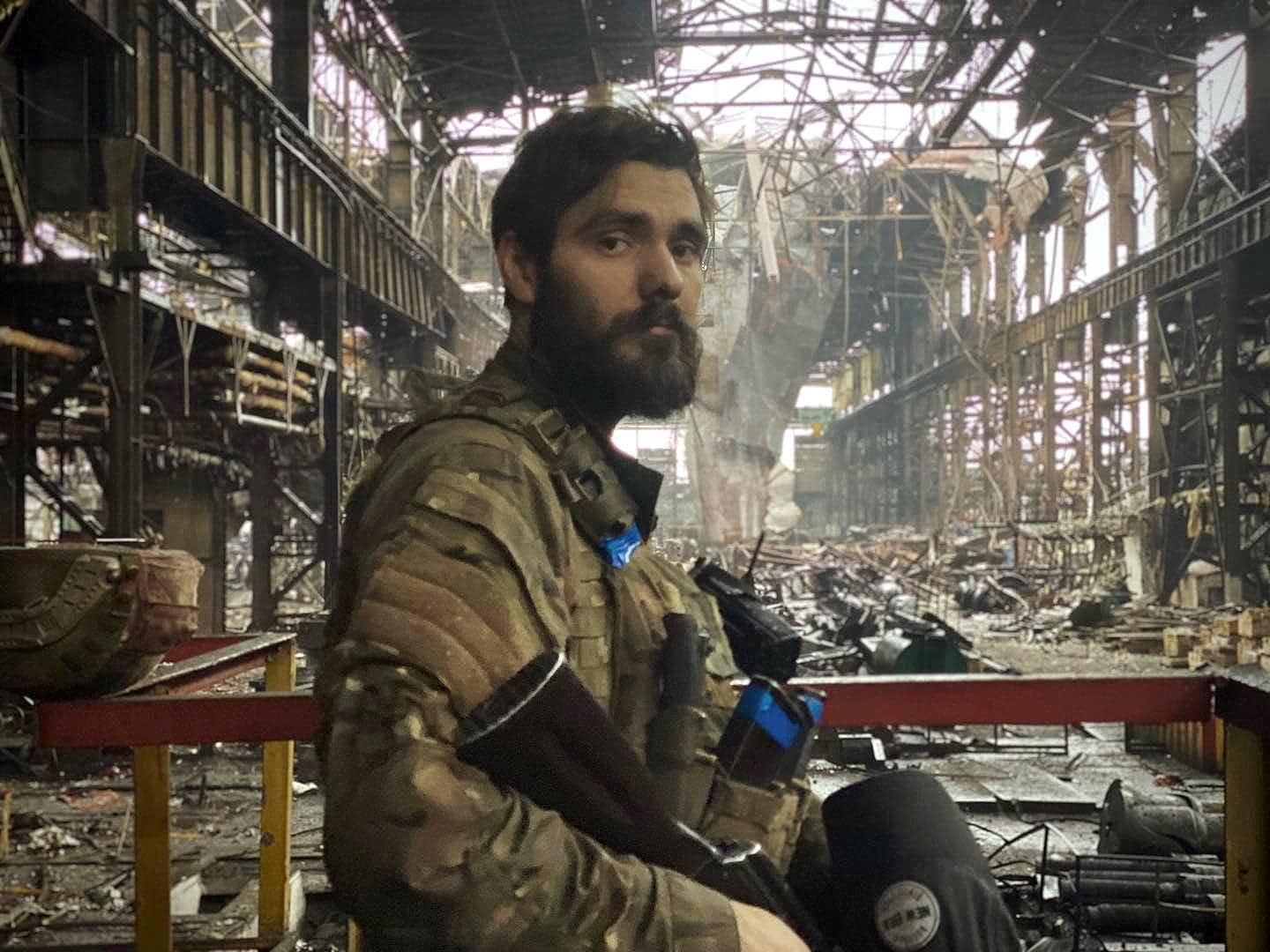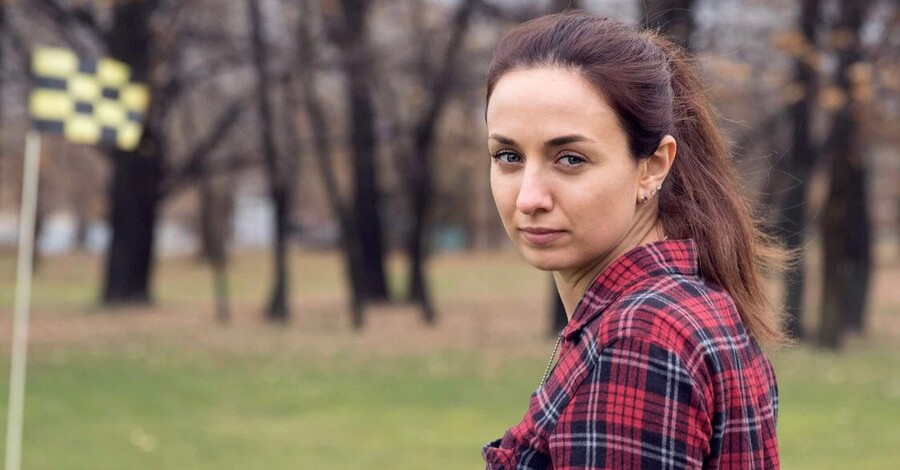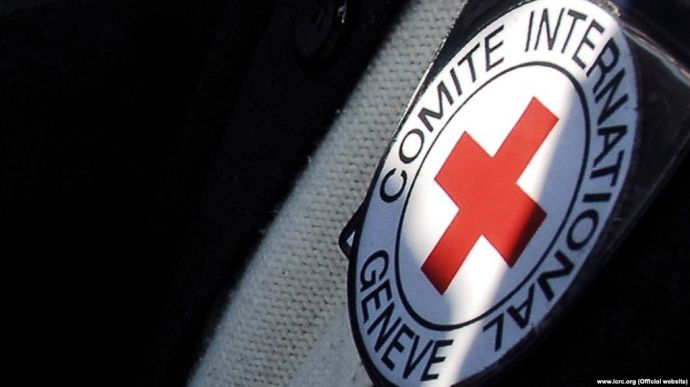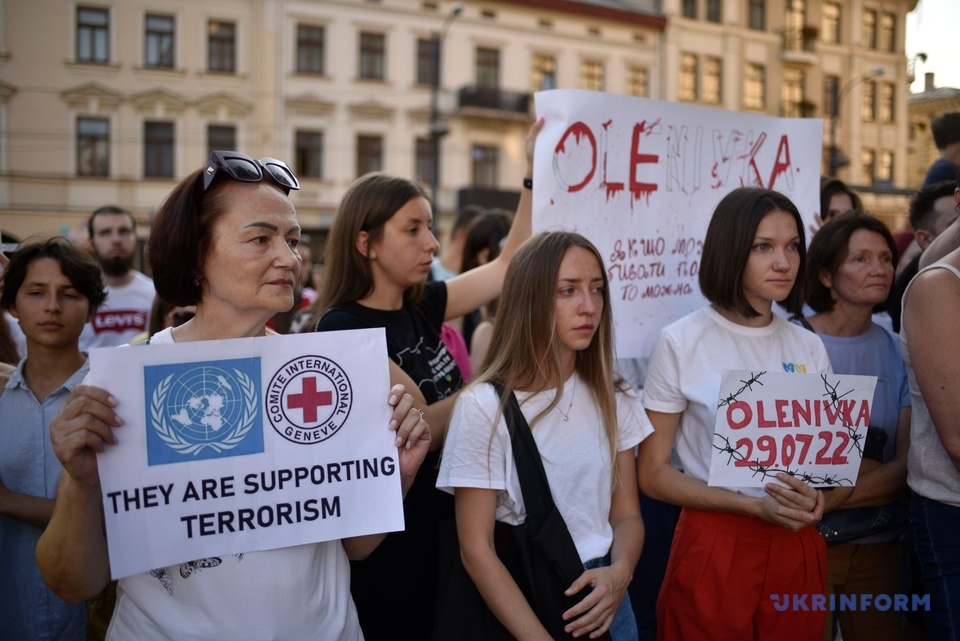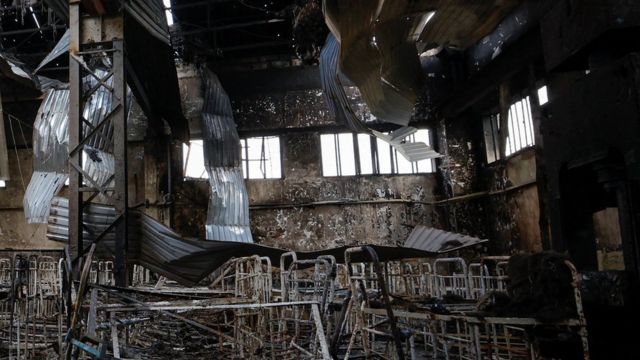My loved one is in captivity: What defenders' relatives should do, and how the world (doesn't) help them
After the terrorist attack in Olenivka, where the russians blew up a prison with Ukrainian prisoners of war, it became apparent that russia would not follow any war rules. It only strengthens its image as a terrorist state.

Relatives of defenders in russian captivity don't know for sure either the condition or the whereabouts of their loved ones. They are forced to watch propaganda videos and read russian media, hoping to see a familiar face in the following staged stories. Where to look for help? Where to turn, so the state system doesn't forget about the prisoner? And why do all the existing systems not work well with russia? Rubryka found out.
What is the problem?
"They never once answered the question of where my brother is"
Sandra Krotevych's brother, Bohdan Krotevych, is the chief of staff of the Azov regiment and one of the defenders of Azovstal, who had to surrender on May 20. Since then, Sandra doesn't know if her brother is alive, where he is and how his rights are protected by those who should do so. The Defense Intelligence (GUR), the Security Service of Ukraine (SBU), the UN, and the International Committee of Red Cross (ICRC) are among them. Sandra has a lot of questions about the last two organizations.
"I have no respect for the International Committee of the Red Cross or understanding of how they work. Because they never called me. They never once answered the question of where my brother was. They never saw him.
The only thing I received from them was confirmation that when the military left Azovstal and surrendered, Bohdan was among them. But I don't know if they contacted him or examined him even then. The same applies to the UN," says Sandra.
The exchange of prisoners is slow. According to the Ukrainian authorities, the russian side doesn't initiate such procedures. In addition, the russians don't allow representatives of international organizations to enter the places of detention of prisoners. The number of captured defenders is currently not disclosed. But it is known that one and a half thousand civilians were in russian captivity as of the end of June. However, russia confirmed only 120 through ICRC.
Most of the families of these people and other prisoners know nothing about the conditions and health they are in and, even more so, when to wait for an exchange.
What is the solution?
How should it be per international conventions?
If your loved one serves and hasn't been in touch for more than three days, you must:
- Contact the military unit and make sure that the person disappeared and is not in a hospital or on combat duty;
- Ask the relatives and command of the missing person about everything that preceded it, collect information about their last known place of stay;
- Contact the military commissariat to check whether they have received a missing person status report there;
- Apply to the police with a statement and then to the SBU because they take care of prisoners.
It's also necessary to contact the police and SBU if a civilian is captured. In this context, it is more difficult to talk about norms and algorithms because the same Geneva Convention doesn't have a mechanism for the release of civilians.
What happens on the other side of captivity is also essential. The Geneva Convention has defined the rules for treating prisoners of war since 1949. Yevhen Vorobiov, Human Rights Platform NGO lawyer, explains:
"Each prisoner of war should be allowed to send a postcard to their family and the Central Prisoner of War Agency immediately after their capture or no later than a week after arriving at the camp (even if it is a transit camp). There you need to provide information about your capture, your health, and your postal address. Such cards are sent as soon as possible. Their dispatch cannot be delayed under any pretext.
It is the close relatives of the prisoner who are informed. They are parents, spouse/husband, brothers, sisters, children, and parents, brothers, sisters and children of the prisoner's wife or husband."
Any other person interested in the prisoner's fate can also submit a request for information to the SBU or GUR. However, in this case, you should prepare for being probably refused and the fact that it will have to be challenged in court as an unreasonable restriction of access to information.
How does it work?
Does something work with russia at all?
Contrary to the Geneva Convention, the russian authorities have not created an information bureau for prisoners of war. It complicates the task for both parties because not only the Ukrainian authorities should work with the bureau but also the families of russians who are in Ukrainian captivity. Instead, Ukraine has such an institution.
"The National Information Bureau (NIB for short) was established on March 17, 2022. The NIB acts following international humanitarian law, in particular Art. One hundred twenty-two of the Geneva Convention on the Treatment of Prisoners of War (III) and Art. 136 of the Geneva Convention on the Protection of the Civilian Population in Time of War (IV).
The main tasks are:
- collecting and analyzing information about prisoners of war;
- keeping a centralized record of prisoners of war;
- managing and transferring personal valuables of prisoners of war;
- exchanging information about prisoners of war with state authorities, the International Committee of the Red Cross," Yevhen Vorobiov explains.
The ICRC should supplement the work of NIB and a similar office that should be in russia because this organization has an international mandate to visit prisoners and inspect the conditions where they are kept, help with exchanges and seek full respect for human rights. However, the reality is different.
The sister of the captured Azov soldier, Sandra Krotevych, says that after the terrorist attack in Olenivka, the ICRC contacted the relatives of the soldiers, asking them to fill in the tables indicating the place of detention of the prisoners. Although the ICRC should, on the contrary, provide such information to relatives and not ask them.
"We stormed the ICRC and NIB ourselves because it hurts us; it is important to us. But the organizations that undertook to comply with the same Geneva Convention or the Declaration on Human Rights do not fulfill them, so we must always attack them. We called and tried to find out what happened to our guys, who was alive and who died.
We have not received any information from these organizations. The ICRC called families and asked them to fill out a table where they had to indicate where their relative was. But the question for the ICRC is, why does it ask us these questions? They should know where our relatives are and provide us with this information," says Sandra.
What is the problem?
russia is a terrorist state
Consequences of the russian attack on the colony in Olenivka, where russia kept prisoners of war, including the defenders of Azovstal
On August 2, russia's supreme court recognized the Ukrainian Azov Regiment as a terrorist organization. Even earlier, in the so-called "Donetsk People's Republic," a criminal court accused foreigners who fought on the side of Ukraine of being mercenaries and sentenced them to death. These prisoners will not be the last to be persecuted by russia.
According to both russian and Ukrainian laws, if prisoners of war are found guilty of any crimes, they must serve their sentences. If the court finds a person innocent, the states already have to conclude an exchange agreement. Or the convicted person should be pardoned by the president.
"Usually, military personnel are prosecuted for war crimes or violations of the customs of war. Then they can not be exchanged but are sent to the country's prison where the sentence was passed. But in practice, the mechanism works somewhat differently.
The list for exchange may also include a person who has already been tried, but then the state must do something about their sentence: transfer to another state to serve a sentence, pardon, etc. It is evident that if russia hands over a convicted Ukrainian to us, he will not have any punishments. But according to the documents in russia, everything will be done exactly like that. The Ukrainian side does the same," lawyer Yevhen Vorobiov explains.
Recognizing "Azov" as a terrorist organization can be a kind of legalization of the reluctance to return these fighters. And it can be common intimidation and another way to complicate the exchange process.
What is the solution?
How else to look for a person if all systems are silent
After the defenders of Azovstal surrendered, their relatives decided to create a public organization that would stand up for their rights and would support the families of other prisoners. Now the Families of Azovstal Defenders Association organizes rallies that not only remind of captured soldiers but also collect funds for their families and recently released soldiers. Of course, they constantly monitor all available sources from which it is possible to confirm at least that the defender is alive.
"It's hard to say what we don't do. Even as investigators, we look over all the photos, and find out information about the boys, where they are, what's with them, and in what condition they are. So it's hard to say what we don't do. We're doing work for the UN, for the ICRC; we are trying to find out who, where, and in what condition.
We communicate with families, help them, deal with their psychological rehabilitation, and communicate with our authorities and international organizations. We are constantly in touch with our Ministry of Foreign Affairs, the Government of Ukraine, and the President's Office," Sandra Krotevych explains.
So, after writing all the necessary statements to the police and the SBU, you can ask for help in finding prisoners here:
- Families of Azovstal Defenders Association (here, they will help with the search for information about the prisoner and support for his family);
- Telegram channel Poshuk.Polon [Search.Captivity, ed.] (it is an initiative within the framework of which russian lawyers are involved in the search and conduct search operations on the spot. You need to fill out an application to start looking for a specific prisoner);
- Chatbot UK Rescue Bot (here they search for captured civilians; the channel cooperates with the Territorial Defense, so it is pretty effective. You also need to fill out a form);
- Chatbot Family Search (searches for people by phone number).



